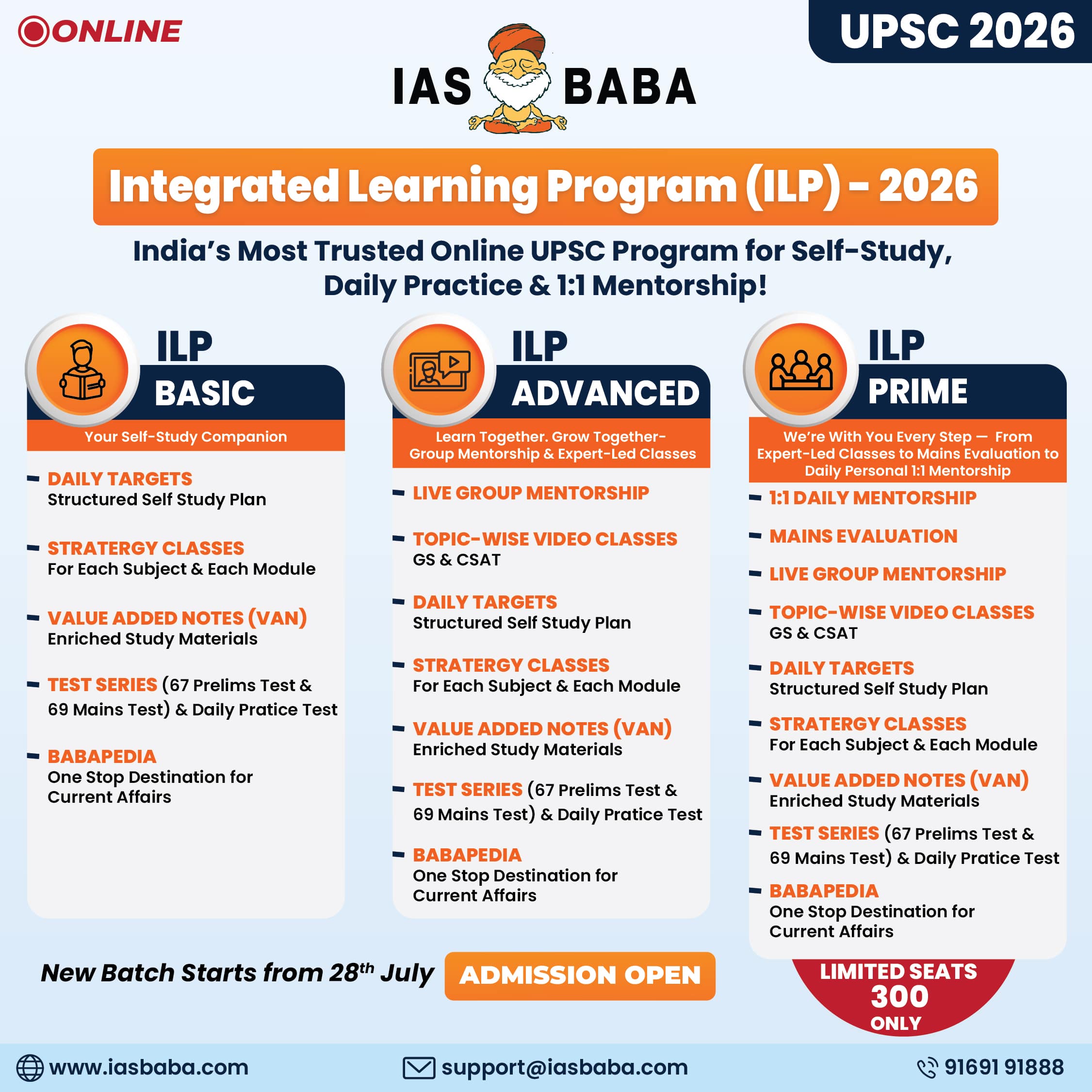Governance, Indian Polity & Constitution
In News: President of India administers the oath of office of Vice President of India to Shri Jagdeep Dhankhar
Vice-President (VP)
- S/he Vice-President occupies the second highest office in the country.
- S/he is accorded a rank next to the President in the official warrant of precedence.
Election
The Electoral College of VP is different from the Electoral College for the election of the President in the following two respects:
- It consists of both elected and nominated members of the Parliament (in the case of president, only elected members).
- It does not include the members of the state legislative assemblies (in the case of President, the elected members of the state legislative assemblies are included).
Qualifications
To be eligible for election as Vice-President, a person should fulfil the following qualifications:
- He should be a citizen of India.
- He should have completed 35 years of age.
- He should be qualified for election as a member of the RajyaSabha.
- He should not hold any office of profit under the Union government or any state government or any local authority or any other public authority.
The Constitution lays down the following two conditions of the Vice-President’s office:
- He should not be a member of either House of Parliament or a House of the state legislature. If any such person is elected Vice-President, he is deemed to have vacated his seat in that House on the date on which he enters upon his office as Vice-President.
- He should not hold any other office of profit.
Term of Office
- The Vice-President holds office for a term of five years from the date on which he enters upon his office.
- However, he can resign from his office at any time by addressing the resignation letter to the President.
- He can also be removed from the office before completion of his term.
- He can be removed by a resolution passed by a majority of all the then members of the Rajya Sabha and agreed to by the Lok Sabha.
- This means that this resolution should be passed in the Rajya Sabha by an effective majority and in the Lok Sabha by a simple majority.
- This resolution can be introduced only in the Rajya Sabha and not in the Lok Sabha.
- But, no such resolution can be moved unless at least 14 days’ advance notice has been given.
- No ground has been mentioned in the Constitution for his removal.
- The VP can hold office beyond his term of five years until his successor assumes charge. He is also eligible for reelection to that office.
- The Constitution has not fixed any emoluments for the VP in that capacity.
- He draws his regular salary in his capacity as the ex-officio Chairman of the Rajya Sabha.
The functions of Vice-President are two-fold:
- He acts as the ex-officio Chairman of Rajya Sabha.
- In this capacity, his powers and functions are similar to those of the Speaker of Lok Sabha.
- He acts as President when a vacancy occurs in the office of the President due to his resignation, impeachment, death or otherwise.
- He can act as President only for a maximum period of six months within which a new President has to be elected.
- Further, when the sitting President is unable to discharge his functions due to absence, illness or any other cause, the Vice-President discharges his functions until the President resumes his office.
- While acting as President or discharging the functions of President, the VP does not perform the duties of the office of the chairman of Rajya Sabha.
- During this period, those duties are performed by the Deputy Chairman of Rajya Sabha.
Source: Pib.gov
Previous Year Question
Q.1) With reference to Deputy Speaker of Lok Sabha, consider the following statements: (2022)
- As per the Rules of Procedure and Conduct of Business in Lok Sabha, the election of Deputy Speaker shall be held on such date as the Speaker may fix.
- There is a mandatory provision that the election of a candidate, as Deputy Speaker of Lok Sabha shall be from either the principal opposition party or the ruling party.
- The Deputy Speaker has the same power as of the Speaker when presiding over the sitting of the House and no appeal lies against his rulings.
- The well established parliamentary practice regarding the appointment of Deputy Speaker is that the motion is moved by the Speaker and duly seconded by the Prime Minister.
Which of the statements given above are correct?
- 1 and 3 only
- 1, 2 and 3
- 3 and 4 only
- 2 and 4 only














